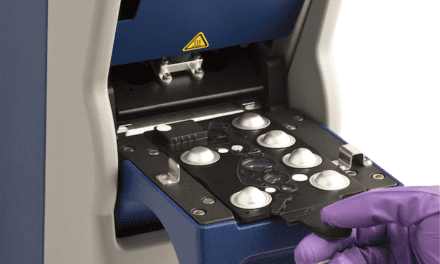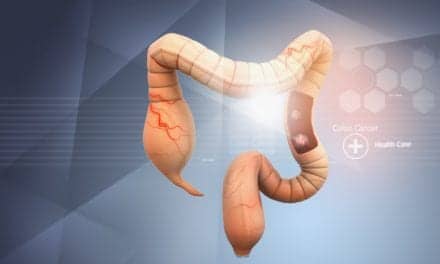In a study of more than 1,000 people screened for colorectal cancer, the InSure fecal immunochemical test (FIT) from Clinical Genomics, Bridgewater, NJ, was significantly more sensitive than two leading fecal occult blood tests for detecting colorectal cancer.
The study compared three fecal occult blood tests: Hemoccult II Sensa (a highly sensitive guaiac fecal occult blood test), from Beckman Coulter, Brea, Calif; InSure FIT; and OC FIT-Chek from Polymedco, Cortland Manor, NY. The specimens analyzed were from 1,006 asymptomatic patients aged between 50 and 75 years, who also received a screening colonoscopy.
The authors reported that InSure FIT was statistically significantly more sensitive than both the Hemoccult II Sensa and OC FIT-Chek. Sensitivity for detecting advanced colorectal neoplasia was highest for InSure FIT at 26.3%, followed by OC FIT-Chek at 15.1%, and Hemoccult II Sensa at 7.4%. Specificity was found to be high for all three tests, ranging from 96.8% to 98.6%.
“We are pleased to see the publication of this pivotal study, which provides importance evidence that not all FOBTs are equal and that physicians should consider using highly sensitive and specific FITs, such as InSure FIT, in colorectal cancer screening programs” says Mark Boyle, president of Clinical Genomics.
With FDA premarket notification (510(k)) clearance and waived status under the Clinical Laboratory Improvement Amendments of 1988, the InSure FIT detects human hemoglobin from blood in stool, as an aid in the detection of lower gastrointestinal bleeding. A number of medical conditions may be associated with lower gastrointestinal bleeding, including adenomas, colorectal cancer, diverticulitis, iron deficiency anemia, and ulcerative colitis.
InSure FIT features a unique brush sampling design. A water sample is collected from the toilet bowl by simply brushing the surface of the stool to release any blood into the surrounding water, rather than having to collect a stool sample.
The American Cancer Society recommends annual fecal immunochemical testing for individuals of average risk, starting at age 50, in screening programs for the early detection of adenomatous polyps, precursors to cancer, and colorectal cancer.
For more information, visit Clinical Genomics.
REFERENCE
- Shapiro JA, Bobo JK, Church TR, et al. A comparison of fecal immunochemical and high-sensitivity guaiac tests for colorectal cancer screening. Am J Gastroenterol. 2017;112(11):1728–1735; doi: 10.1038/ajg.2017.285.




